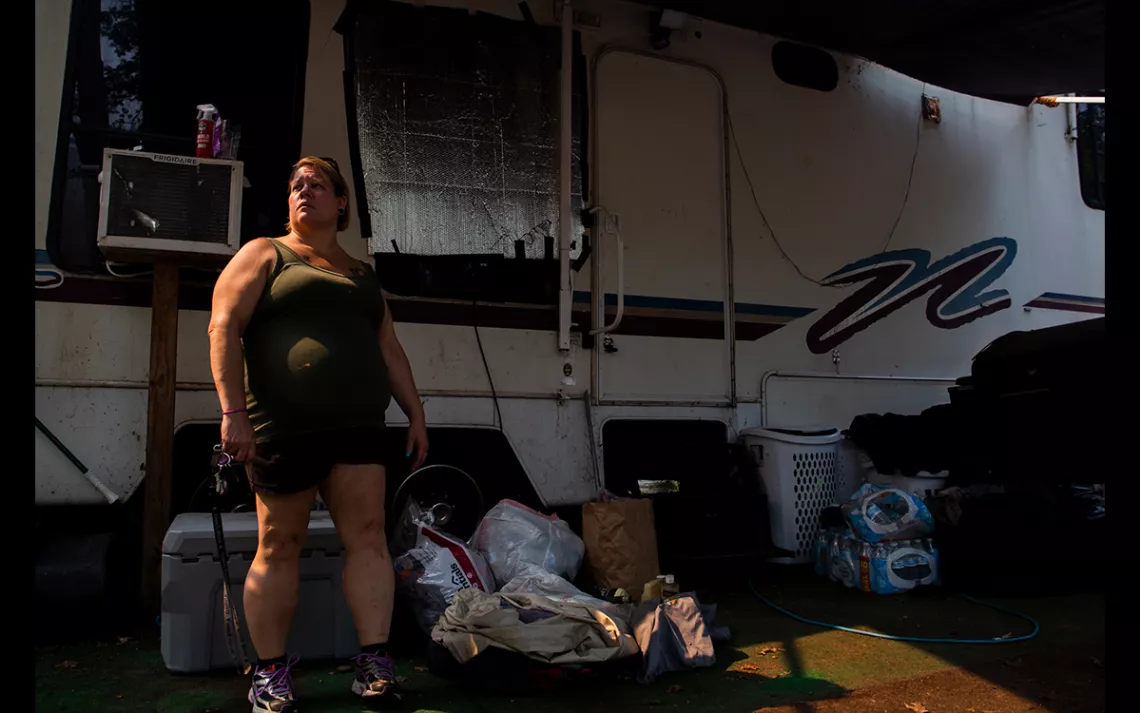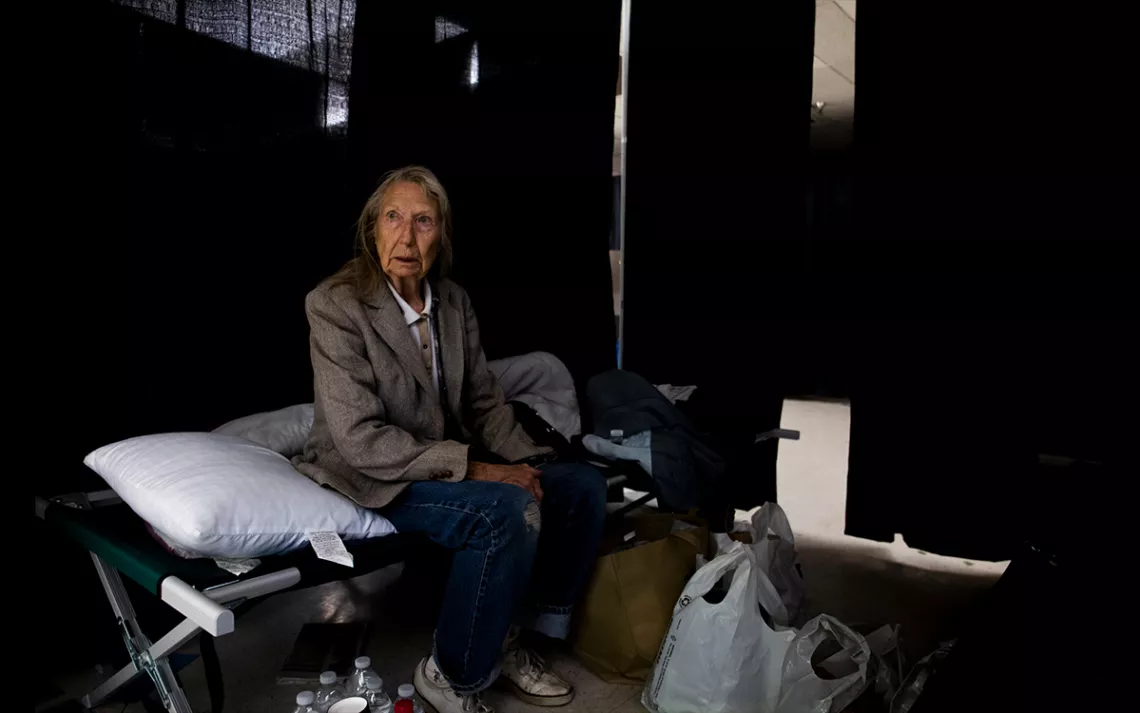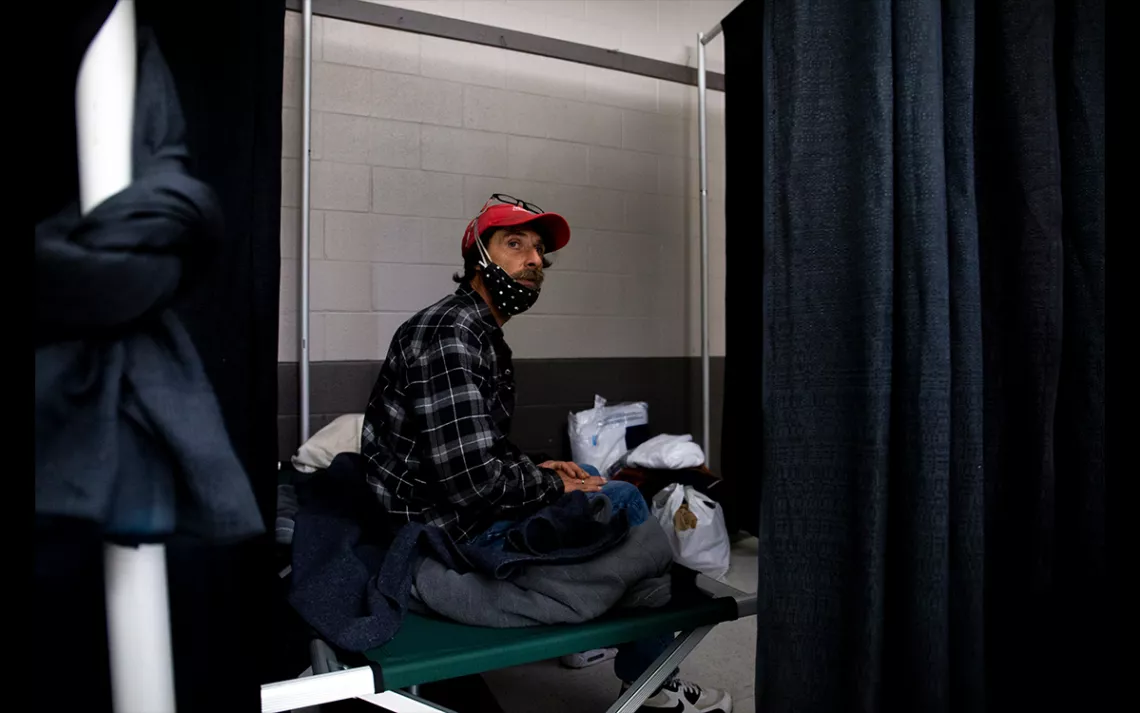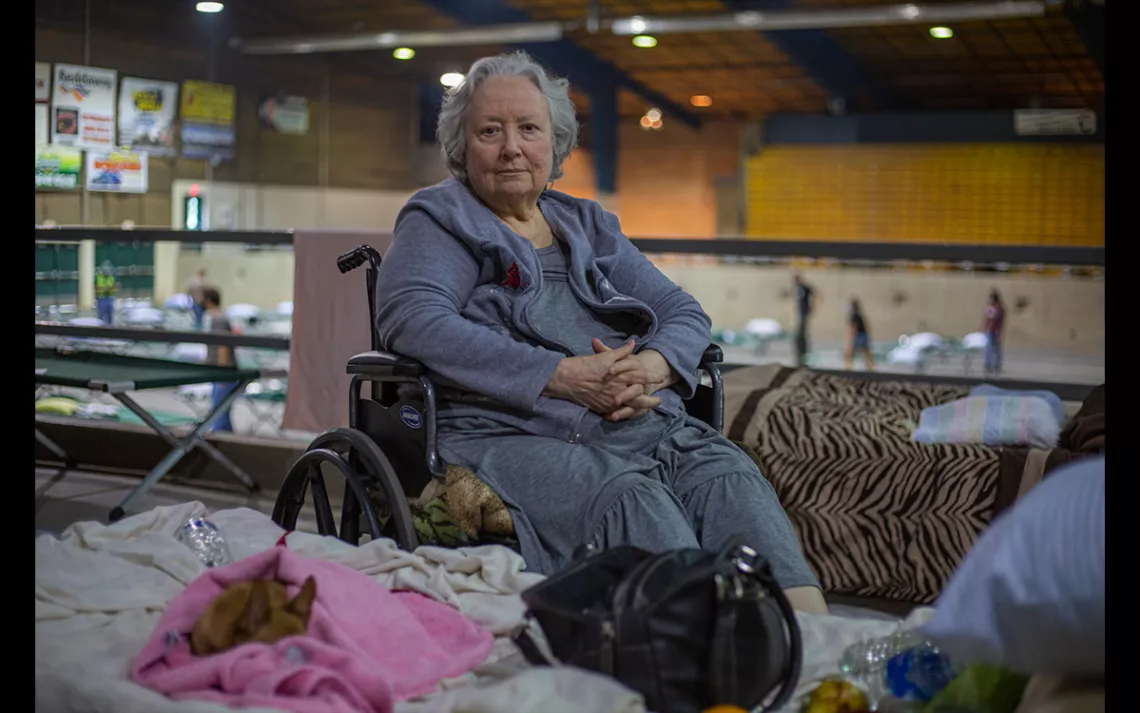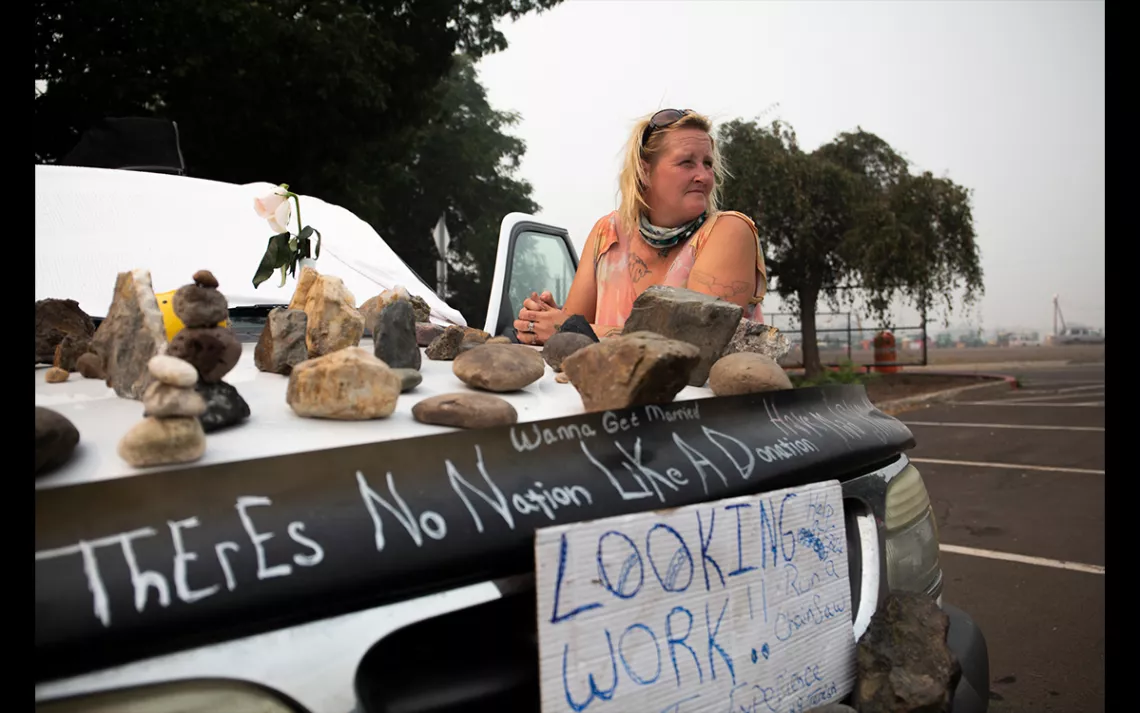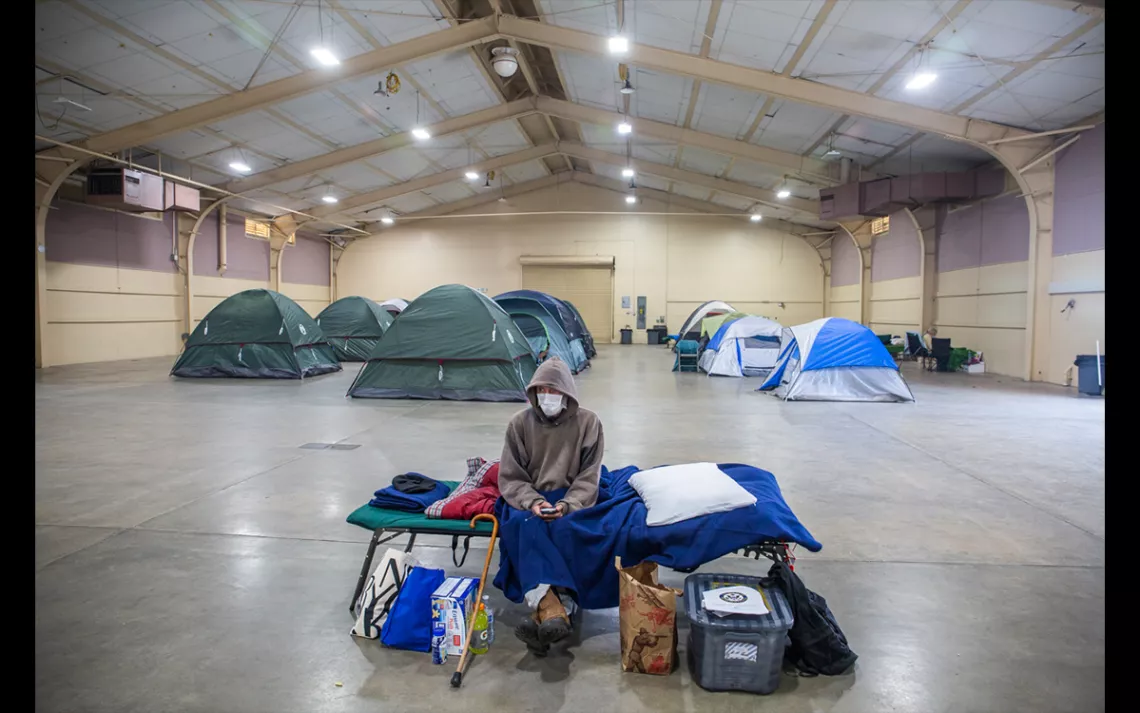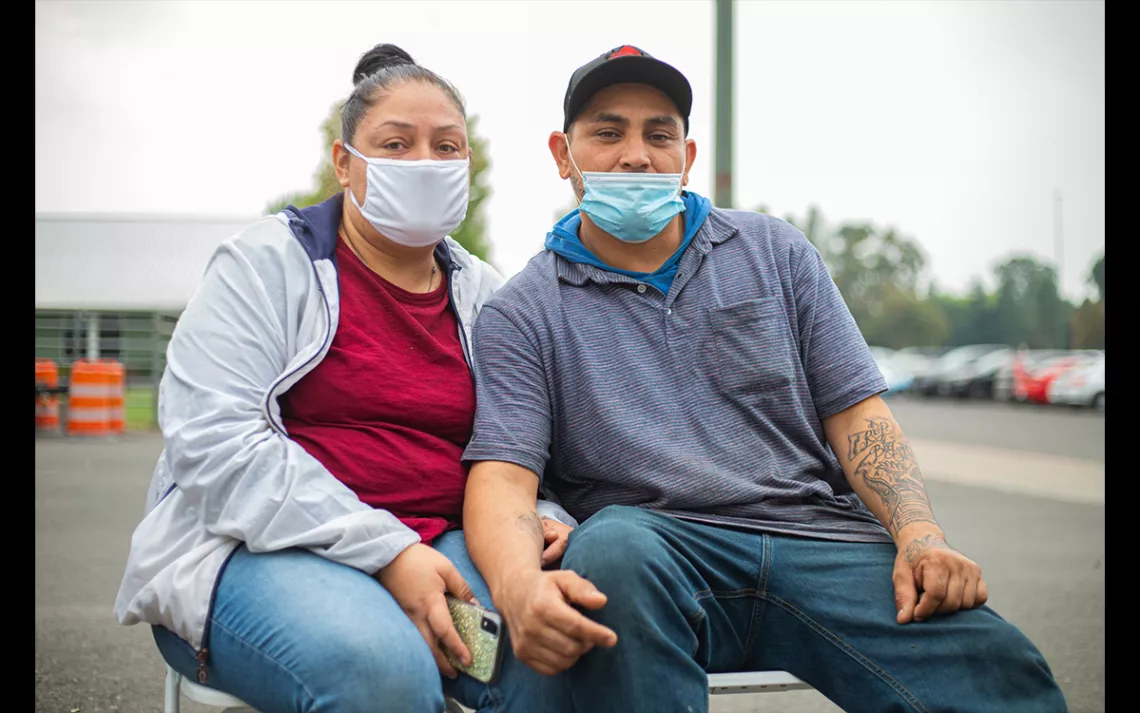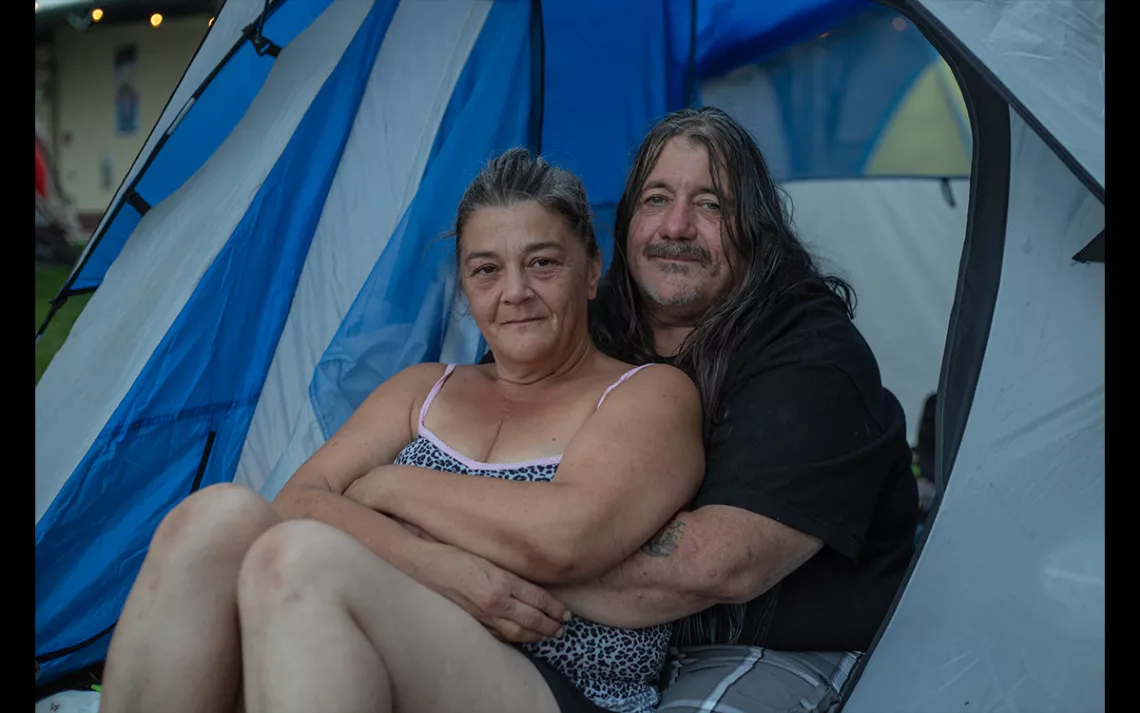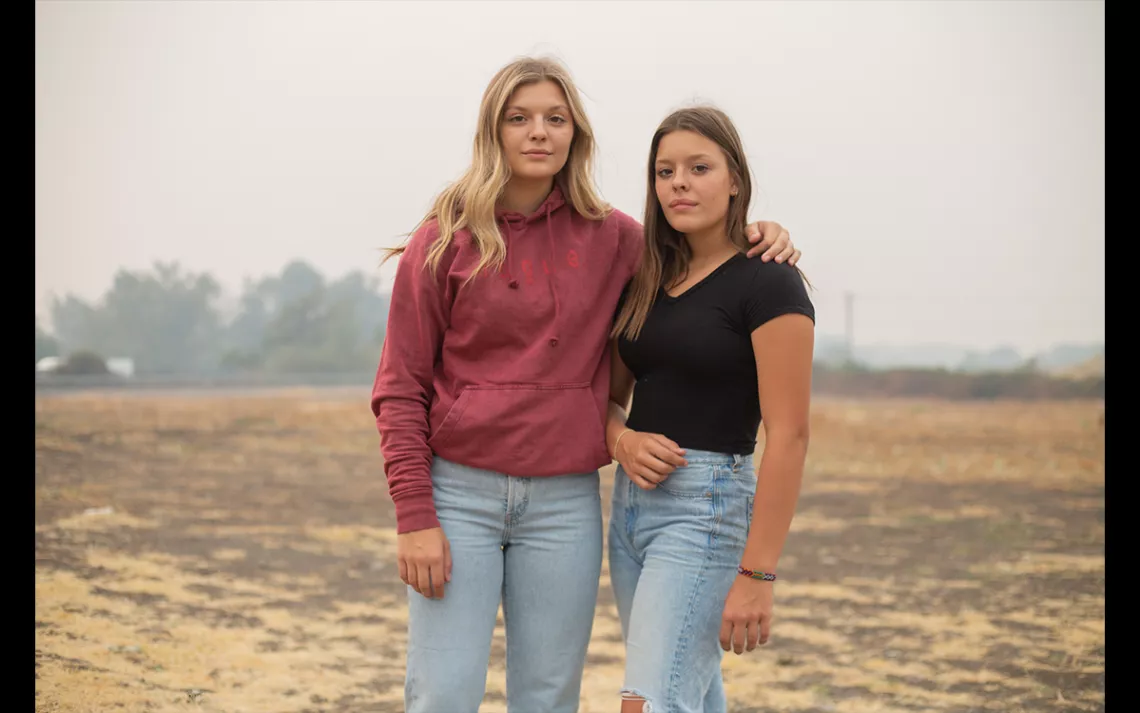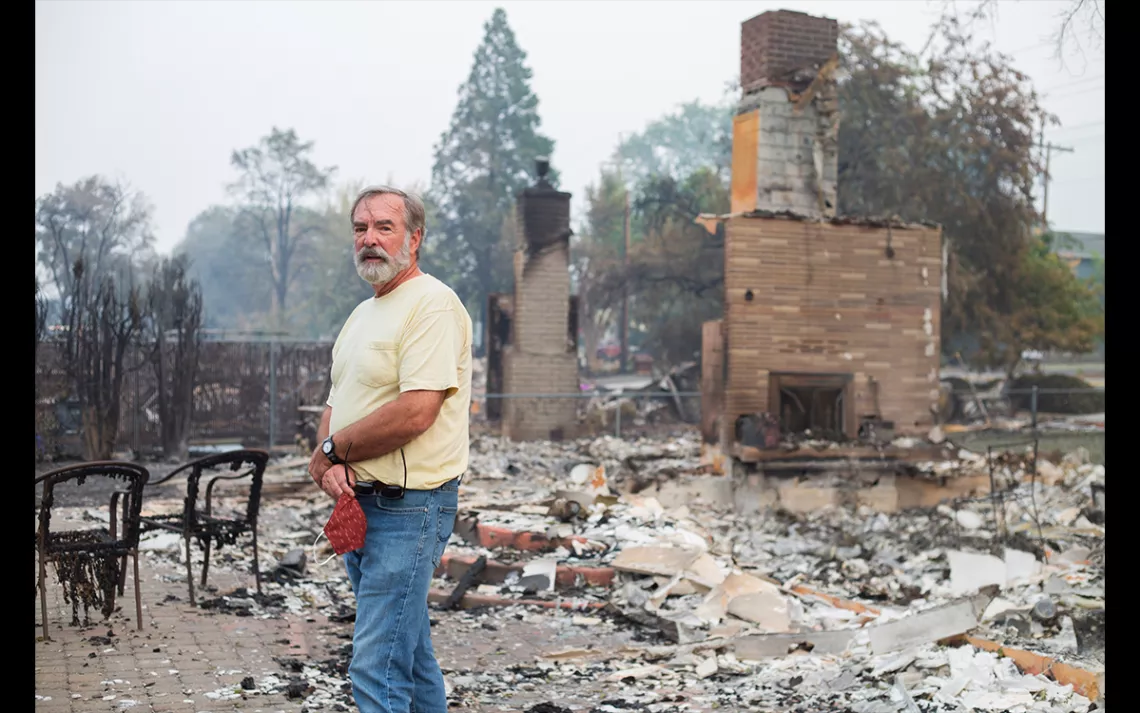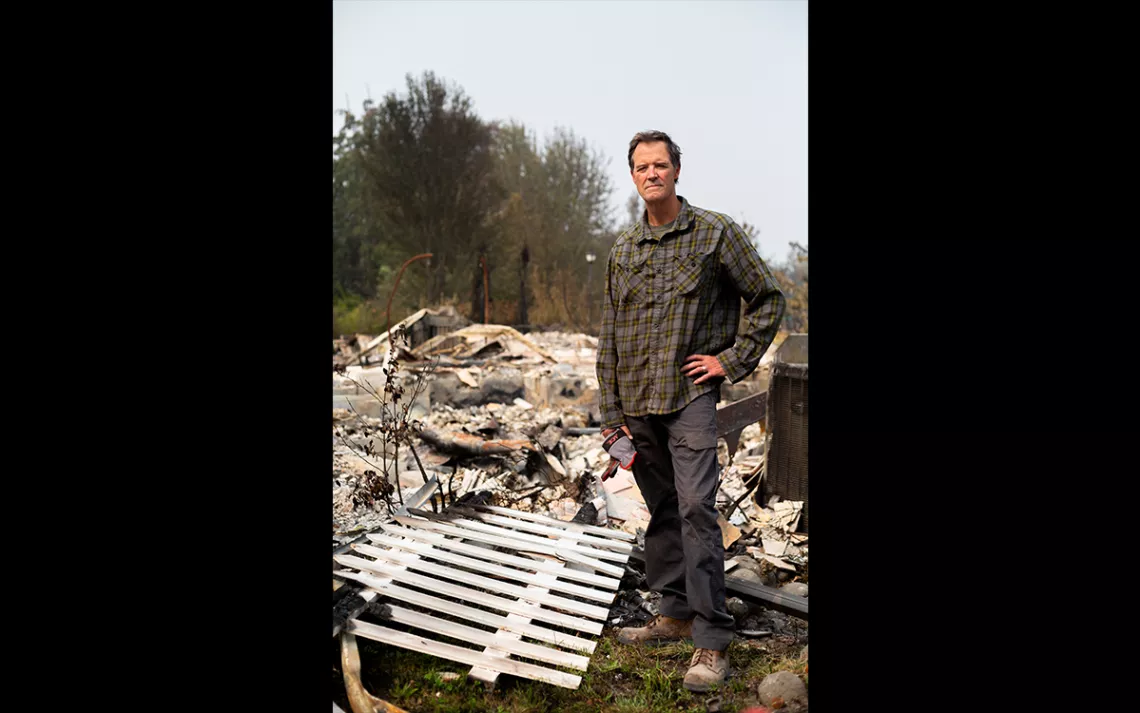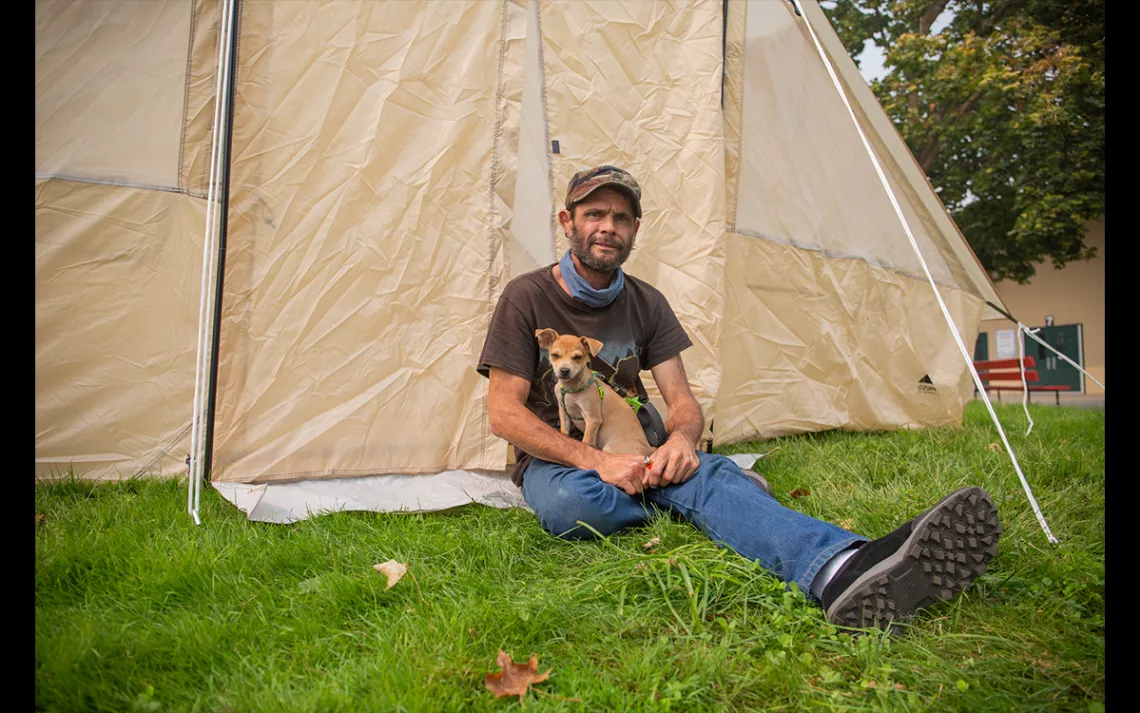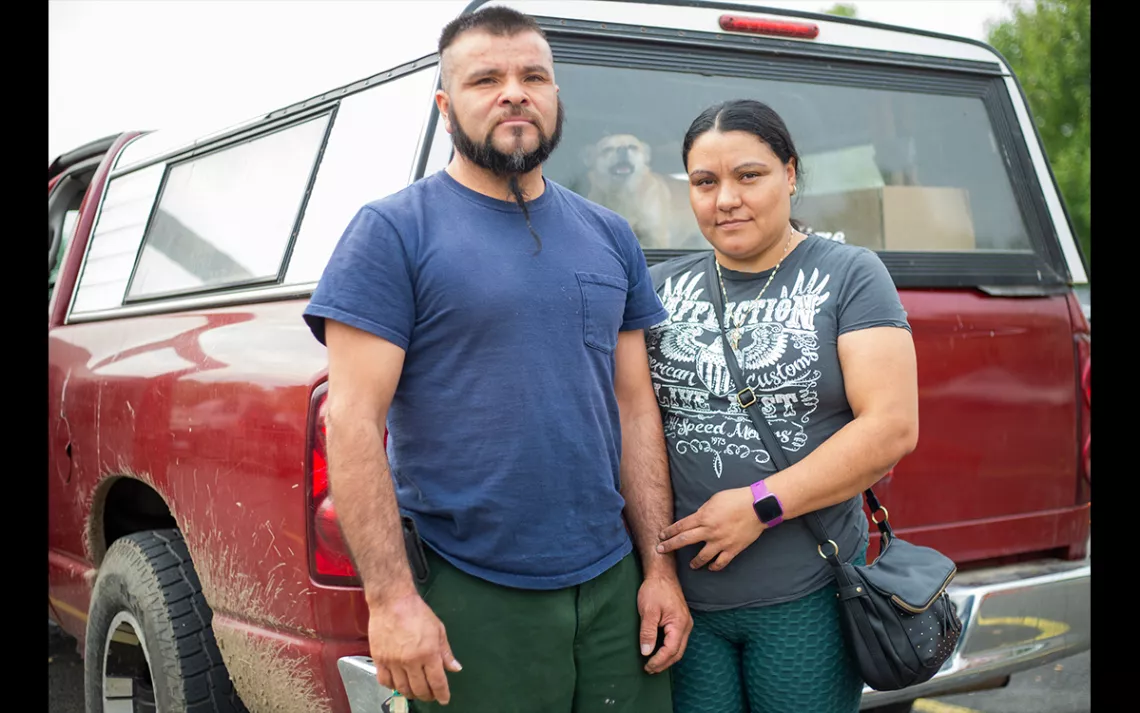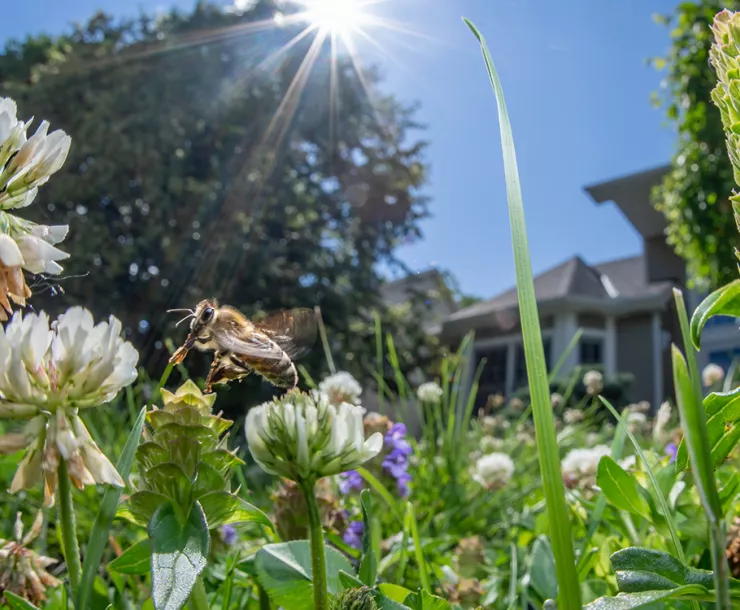The West on Fire
A photographer explores the devastation left behind by Oregon and California wildfires
Photos and captions by Nina Riggio
When Peter Cockerell evacuated his home of 28 years, he took his handheld radio, flip phone, medication, and “meal drinks,” as he can’t chew food. “I’m going to be honest with you. I haven’t showered in months. I’m too scared to because if I fell, I’m not sure anyone would come for me,” Cockerell, who is 69 years old, said on August 27, 2020, as he rocked back and forth on his cot in a fire evacuation center. The center was set up to help those affected by the CZU Lightning Complex Fire, which has now burned 86,509 acres and destroyed 1,490 buildings. “I’m disabled and do not have a car or really any family or friends, so the sheriff’s department came to give me a ride here.”
Cockrell is just one of 77,000 people who have been evacuated from the third-largest wildfire in California history. In Oregon, blazes advanced on towns so rapidly that even fire crews had to flee, and 500,000 people were evacuated across the state. The smoke from these historic western wildfires enveloped the whole continent, dimming the sun in cities 2,000 miles away.
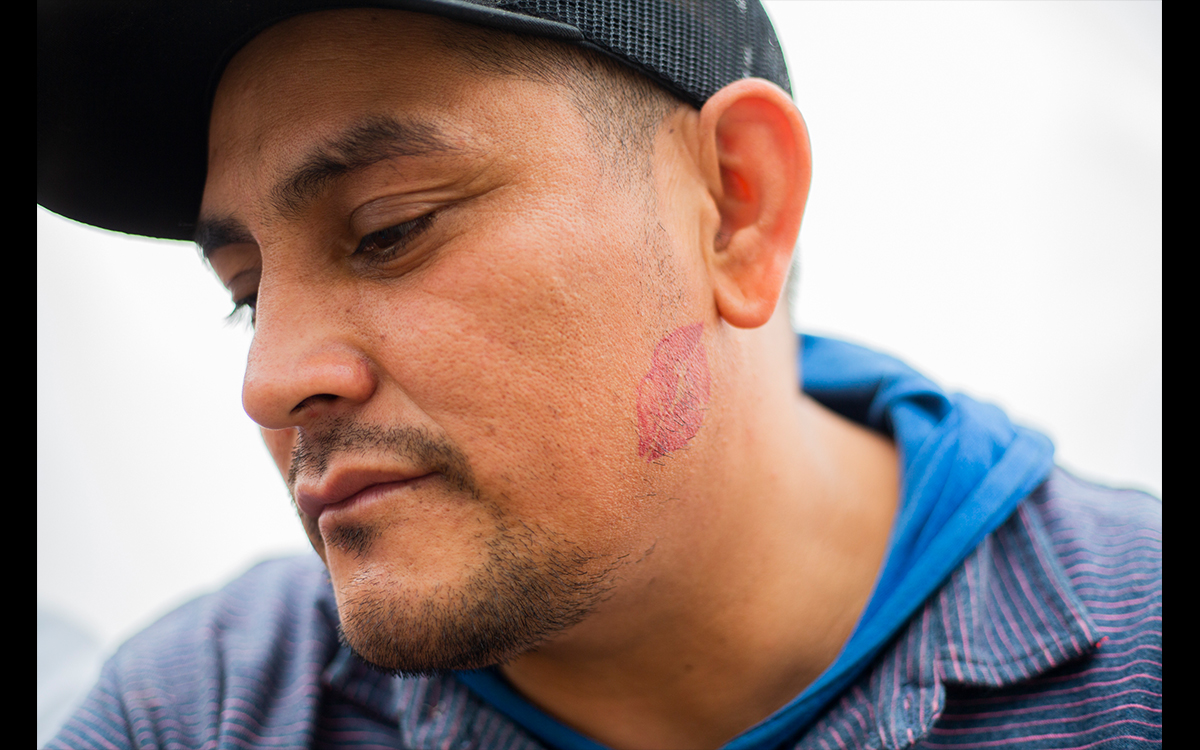
Federal spending on wildfire suppression has ballooned from roughly $450 million per year in the 1990s to a record-setting $3.1 billion in 2018. While suppression costs have increased, the budget for the Joint Fire Science Program, which is funded through the Interior and Agriculture Departments and produces research on the best practices for fire prevention and management, has fallen. The program started with a budget of $12.9 million in 2017; today that has been slashed by nearly half.
Meanwhile, global average temperatures are already 2°F more than they were in preindustrial times, a threshold often associated with the worst effects of climate change. Unless humans significantly reduce greenhouse gas emissions, average global temperatures are expected to keep rising. As NASA has shown, in its data on the interplay between fire, humans, and climate for the past two decades, that is going to mean a hotter, drier world, in which monster wildfires like those ravaging the West will be more common.
While federal funding is cut, and fire suppression measures are taken to the extreme, people like those photographed in this story are losing their homes, their livelihoods, their memories, and their loved ones.
This photo series was supported by the journalism nonprofit Economic Hardship Reporting Project.
 The Magazine of The Sierra Club
The Magazine of The Sierra Club
